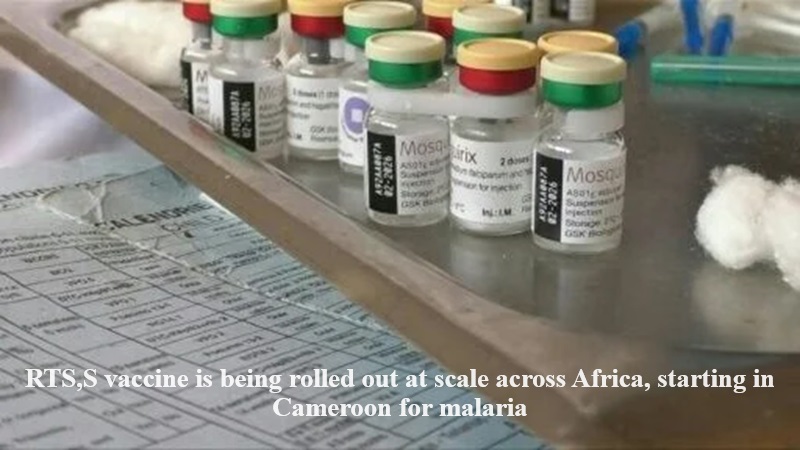
The mosquito-borne disease, responsible for over 600,000 deaths annually, predominantly in Africa, is a significant global health challenge, particularly affecting children under the age of five who account for over 80 percent of deaths on the continent, as per the World Health Organization (WHO). The RTS,S vaccine, designed to combat malaria, is now being introduced on a large scale across Africa, with the rollout commencing in Cameroon after a successful pilot phase.
In Soa, a town situated 20 kilometers from the capital Yaoundé, a six-month-old infant named Noah Ngah became the first to receive the RTS,S vaccine at a local hospital. The event was marked by cheers and encouragement from the nursing staff, bringing relief to Noah’s mother, who was eagerly awaiting the vaccination of his twin sister.
While some parents may initially hesitate, Noah’s mother, Helene Akono, expressed confidence in the importance of vaccines for children. The vaccination initiative is extensive, with numerous vaccine centers established in 42 prioritized districts across Cameroon, a country with a population of around 28 million.
The government has committed to providing the RTS,S jab free of charge and will administer it systematically to all children under six months old, aligning it with other obligatory or recommended vaccinations. This approach ensures comprehensive vaccine coverage for the target population.
In November, the WHO, the UN children’s agency UNICEF, and the Gavi vaccine alliance jointly declared that introducing the RTS,S vaccine on this scale is a “historic step towards broader vaccination against one of the deadliest diseases for African children.” The vaccine’s widespread deployment is expected to have a significant impact on malaria prevention and contribute to saving lives, particularly among the vulnerable age group of children under five.

Post Your Comments